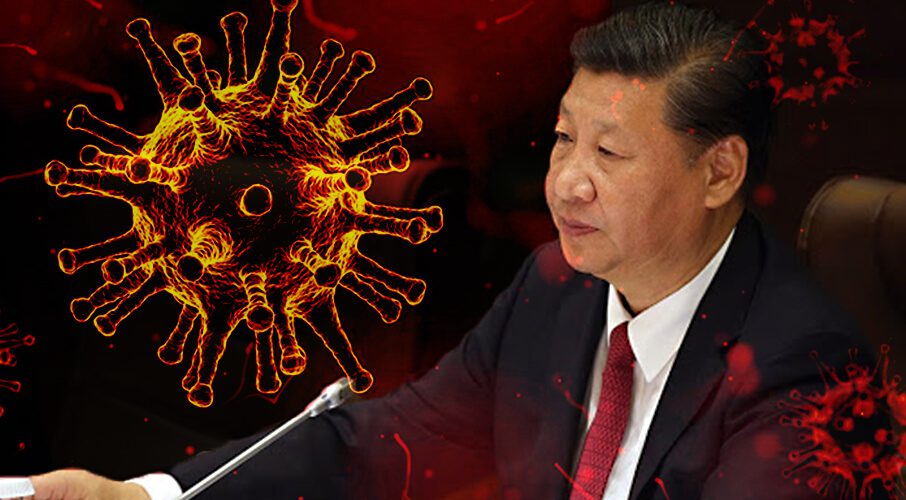 No doubt, the coronavirus will affect the Chinese economy and perhaps diminish its external ambitions. But with Mr. Xi in charge, it would be naive to assume that the crisis will in any way result in political reforms in China, writes J. Michael Cole.
No doubt, the coronavirus will affect the Chinese economy and perhaps diminish its external ambitions. But with Mr. Xi in charge, it would be naive to assume that the crisis will in any way result in political reforms in China, writes J. Michael Cole.
By J. Michael Cole, March 12, 2020
China has had its hands full since the beginning of 2020 with the COVID-19 outbreak, a virus that apparently originated in the city of Wuhan and has, as of this writing, has resulted in more than 3,500 deaths and more than 110,000 confirmed cases, worldwide. Besides the human cost, the novel coronavirus threatens to have a substantial impact on China’s economic growth, and in turn to drag down the global economy.
But it is China’s handling of the crisis in its early days – a period marked by inefficiency, secrecy and the muzzling of whistleblowers – that has led some analysts to believe that a crisis of legitimacy for the Chinese Communist Party (CCP) now looms. Could, in fact, COVID-19 so threaten the CCP’s grip on Chinese society that it leads to significant political reform? Could this be, in short, the CCP’s equivalent of the Soviet Union’s “Chernobyl moment,” the 1986 nuclear-plant meltdown that contributed to the liberalization of the Communist Party of the Soviet Union (CPSU) after it bungled the crisis response?
Indeed, like with the COVID-19 outbreak, the Chernobyl response was initially marred by cover-ups, lies and unwitting UN officials – the International Atomic Energy Agency then, and the World Health Organization playing that role today. That forced the CPSU to open up the space for citizens to talk about ecological concerns, thus providing the impetus for glasnost, a policy of openness. Once those pent-up grievances were aired, openness on other matters became permissible, contributing to perestroika – the attempted restructuring of the system – and ultimately the demise of the CPSU.
But for all the surface-level parallels, the China we see in 2020 is very different from the Soviet Union of 1986. By the time the Chernobyl crisis hit, the CPSU sat atop an empire that was already in a state of decline. General-Secretary Mikhail Gorbachev had already concluded that reforms were necessary.
The CCP itself has also closely studied the conditions by which the CPSU fell apart. As the Soviet Union crumbled, the CCP organized working groups around its collapse, and they determined that openness tended to exacerbate the very forces that threatened to topple a regime. Gorbachev’s mistake was ceding control to forces that he, or his party, could not control. For the CCP, Gorbachev and his glasnost were catastrophes that had to be avoided at all costs.
So rather than emulate Gorbachev, Xi Jinping, arguably China’s most autocratic leader since Mao Zedong, is expected to move firmly in the opposite direction – especially as he contends with an already slowing economy, unrest in Hong Kong, a trade war with the United States and a global environment that has become increasingly skeptical of Beijing’s intentions. After all, the self-preservation and perpetuation of the Chinese Communist Party has been its core principle since its founding – and that is not likely to change any time soon.
Beijing has already launched a propaganda campaign in recent weeks about how China has made a “huge sacrifice” for the sake of the international community, and inside the country, the state has deployed ultranationalism in telling the public that it has handled the crisis in exemplary fashion. Top WHO officials have bent over backwards to laud China’s handling of the crisis with nary a word of criticism for its failings. And even at the height of the crisis, Beijing continued to threaten Taiwan through military exercises and its disinformation campaign against the self-ruled democratic island-nation, while an Australian think tank alleged that Uyghurs from Xinjiang, where more than 1 million people are held in concentration camps, are being forced to replace Han workers in factories across China.
No doubt, the coronavirus will affect the Chinese economy and perhaps diminish its external ambitions; a global economic downturn will inevitably affect the progress made by its Belt and Road Initiative. But with Mr. Xi in charge, it would be naive to assume that the crisis will in any way result in political reforms in China, especially since finding scapegoats, tightening controls and restrictions, and plugging image-threatening gaps in its health system is simpler than having the party do any kind of self-reflection. COVID-19 may be affecting lives around the world, but it has not changed modern China’s foundational fact: For the Chinese Communist Party, the party is the only life that really matters.
J. Michael Cole is a Taipei-based senior fellow with the Macdonald-Laurier Institute in Ottawa and author of Cross-Strait Relations Since 2016: The End of the Illusion, published by Routledge this month. He is a former analyst with the Canadian Security Intelligence Service.




